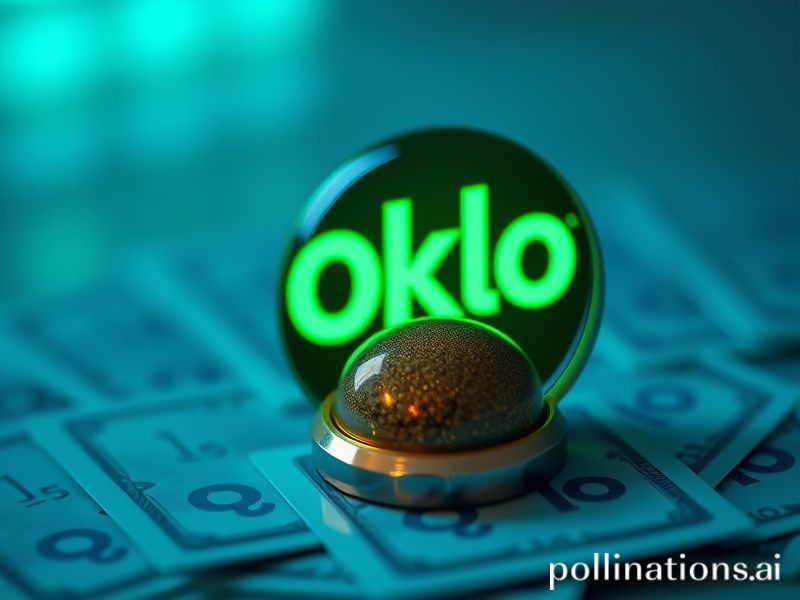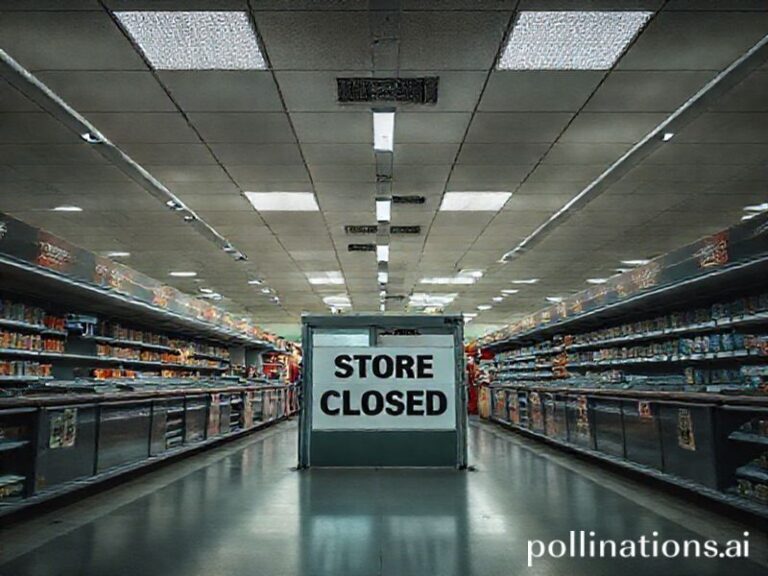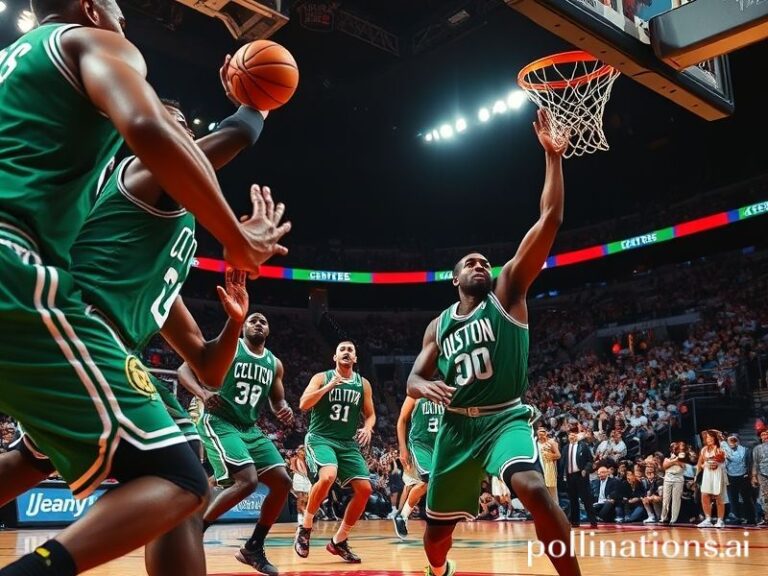OKLO Stock Goes Global: Tiny Reactors, Massive Hype, and the World’s Newest Radioactive Lottery Ticket
PARIS—While most of humanity was busy arguing over which streaming service best numbs the pain of existence, a quiet consortium of physicists, hedge-fund magicians, and geopolitical chess players spent the spring chasing a ticker symbol that sounds like a forgotten Scandinavian cereal: OKLO. The company, which promises to mass-produce “mini” nuclear reactors small enough to fit in a suburban garage yet potent enough to light up half a mid-sized city, saw its stock debut via SPAC merger last month. Cue the usual confetti of press releases about “carbon-free baseload,” “energy independence,” and—everyone’s favorite bedtime story—“climate salvation.”
From a distance the narrative looks adorable: plucky Silicon Valley alumni (ex-SpaceX, ex-Apple, ex-therapists) vow to save the planet by burying thousands of radioactive tea kettles across the globe. Up close, the plot resembles a French farce: the SEC filing lists zero revenue, a $150 million cumulative loss, and a warning that “we may never achieve profitable operations.” Translation: the thing could glow in the dark for reasons not entirely promotional. Still, shares spiked 40 % on day one, proving once again that markets discount physics but never fantasy.
International significance? Picture a world map splattered with desperate governments. Europe is weaning itself off Russian gas by buying… more American LNG shipped through… Russian-insured tankers. Southeast Asia is choking on coal while being lectured by countries that already burned theirs. Africa, home to 60 % of the best solar real estate, is told mini-reactors are the “only viable path” because, apparently, transmission lines are harder to negotiate than uranium supply contracts brokered at 2 a.m. in a Davos hospitality suite. OKLO’s pitch is simple: plant our fridge-sized fission pods anywhere you used to plant democracy and watch baseload bloom. What could go wrong—except the small matter of spent-fuel custody in nations whose postal systems still lose birthday cards?
China, never one to miss a glow-stick party, is already building its own micro-reactor grid, state-funded, unburdened by shareholder letters. Beijing’s version comes with a mandatory social-credit coupon: criticize the plant, lose points, walk to the re-education treadmill—literally powering the grid with dissident calories. Meanwhile Moscow offers turnkey floating reactors to any seaside dictator nostalgic for Chernobyl chic. Against this backdrop OKLO’s Western branding—cute Helvetica logo, pastel website, ESG-compliant gender-balanced board—feels like selling oat milk at a knife fight.
Yet the real dark comedy is financial. SPAC math is the only known substance that decays faster than Californium-252. OKLO’s valuation started at $850 million in the pitch deck, slid to $650 million by merger, and currently hovers somewhere between “hope” and “a moderate-sized yacht.” Retail investors—those incurable romantics who brought you meme coins and NFT apes—now hold shares leveraged on the assumption that federal regulators will rubber-stamp thousands of backyard nukes before the next presidential tweetstorm. The same regulators, mind you, who can’t agree on a rail safety bill.
Still, one must admire the symmetry: a species that invented TikTok attention spans now bets its energy future on devices that remain toxic for 10,000 years. The same week OKLO listed, the Doomsday Clock ticked to 90 seconds before midnight, largely because states can’t stop brandishing bigger toys. Nothing says “we’ve learned” like responding with… smaller toys.
Will OKLO defy gravity, or simply join the long, radioactive graveyard of “too cheap to meter” promises? If history is any guide, expect a 50 % chance of shareholder dilution, 40 % chance of regulatory delay, and 10 % chance the reactors actually power anything larger than a Goldman Sachs Christmas party. The rest of us should invest in candles—and maybe a lead-lined sense of humor. After all, the lights may go out, but the punchlines glow forever.







